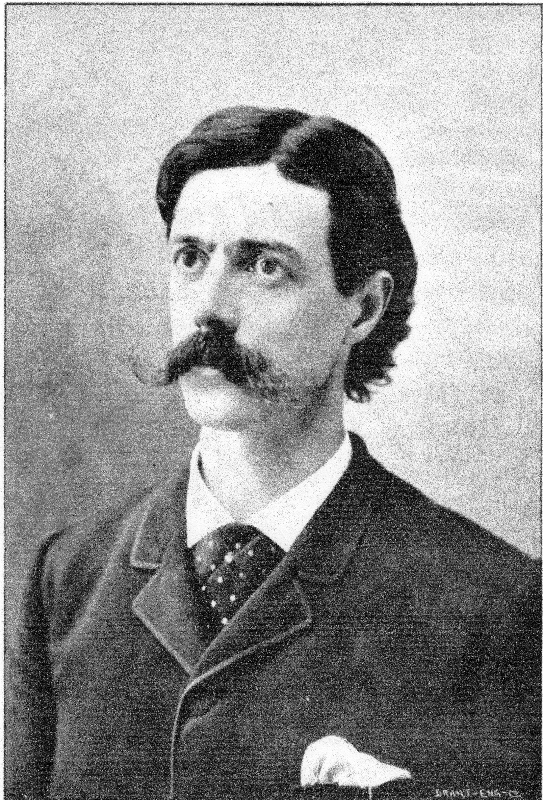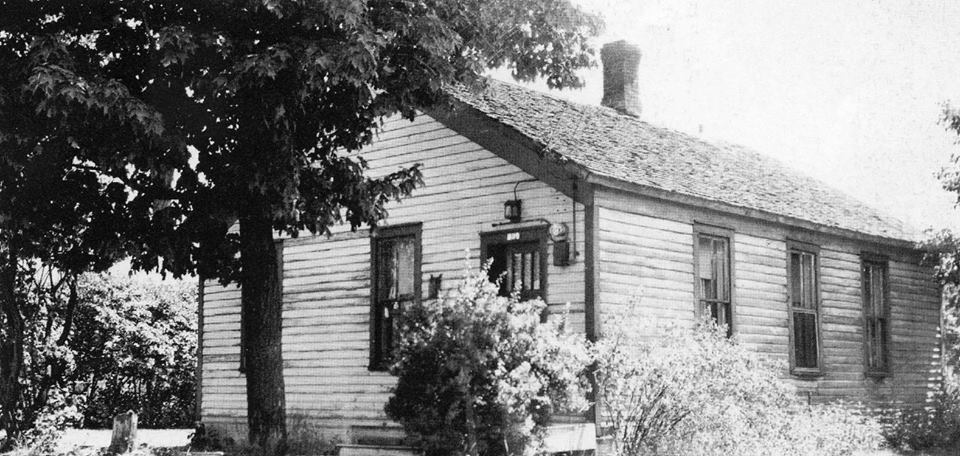
Thomas J. MacMurray
He traveled alone on horseback, riding for miles through an uninhabited wilderness before coming at last to a tiny hamlet. While there, he conducted religious services, visited the sick, buried the dead, comforted the grieving, joined couples in marriage and baptized the faithful uninitiated. The names and exploits of many of these frontier clergymen have faded into obscurity with the passage of time. But the Methodist circuit rider who visited Manistique left a legacy that endures to this day.
Born in Paisley, Scotland on June 23, 1852, Thomas J. MacMurray immigrated to Nova Scotia, Canada with his family in 1862. As a young man he studied theology at Victoria College in Cobourg, Ontario, which served as a Methodist seminary. Soon after completing his studies he immigrated to Wisconsin where he began his life as a traveling minister.
MacMurray arrived in Manistique during the mid 1870s when the sawmill settlement’s population hovered around 200 citizens. The Methodists had placed MacMurray in charge of the Fayette and Manistique Circuit, which extended nearly 40 miles along the northern shore of Lake Michigan in the Upper Peninsula. While in Manistique, MacMurray stayed at the home of the Superintendent of the Chicago Lumbering Company, William Colwell and his family. Also staying at the home was Colwell’s sister-in-law, Mary Barnes (the future Mrs. MacMurray) and the secretary of the lumber company, John Mersereau. The children in the community, including Colwell’s young sons Elmer and Fred, loved him.

Manistique’s first school house where MacMurray held church services
Church services took place in the little village school, located in the triangle park on present day Cedar Street. MacMurray was multi-talented with a flair for the dramatic. He could not only preach, but also sang and played the melodeon. His sermons were both entertaining and morally instructive. Often, he would act out a scene to drive home his message. In one sermon on the evils of intemperance, he portrayed a drunken father coming home to abuse his family. Taking the kerosene lamp from the teacher’s desk, he held it at arm’s length as his body trembled with emotion. The congregation could easily imagine what would happen next.
MacMurray was also an accomplished writer who published several volumes of poetry. His best known works included The Legend of the Delaware Valley and Other Poems and After Hours. His first book of poetry was entitled In Danger and Out of It Again and was published in 1877.
In October of 1877, MacMurray married his sweetheart, Mary Barnes, in a ceremony at Manistique. When his new bride became pregnant with their first child in 1879, the family relocated to Oconto, Wisconsin. He was admitted to the Wisconsin Bar in 1883 and later attended the University of Wisconsin, graduating in 1885 with a law degree.
During the late 1880s MacMurray relocated again to Hamilton, Ohio where he found success on the lecture circuit. His popular presentations were filled with humor and sentiment. His travels took him to towns throughout Ohio, Indiana and Kentucky. He supplemented his income with published poems in the Detroit Free Press, Daily Inter Ocean and the Milwaukee Sentinel.
Changing course yet again, MacMurray returned to Manistique in April of 1890 to become publisher of the Manistique News. MacMurray almost immediately became embroiled in the battle to rid the county of corrupt saloon keepers who promoted prostitution and other forms of vice. When charges were not forthcoming against Seney saloon keeper Dan Dunn for the murder of Steve Harcourt in May of 1891, MacMurray accused the Prosecuting Attorney, William Riggs, of corruption. Riggs brought a libel suit against MacMurray, but the editor was acquitted after testifying on his own behalf. MacMurray continued as editor of the Manistique News until September of 1893 when his printing office was totally destroyed by fire.
MacMurray spent the remainder of his life as a Presbyterian clergyman, being licensed in September of 1894 and ordained in April of 1895. He was pastor at Gladstone, Michigan from 1895-97 and later served in numerous congregations throughout the Midwest. He ended his career in Seattle, Washington. MacMurray died on February 14, 1918 at age 65. His famous grandson, Fred MacMurray was known to most children growing up in the 1960s as Stephen Douglas on the television series, “My Three Sons.”
